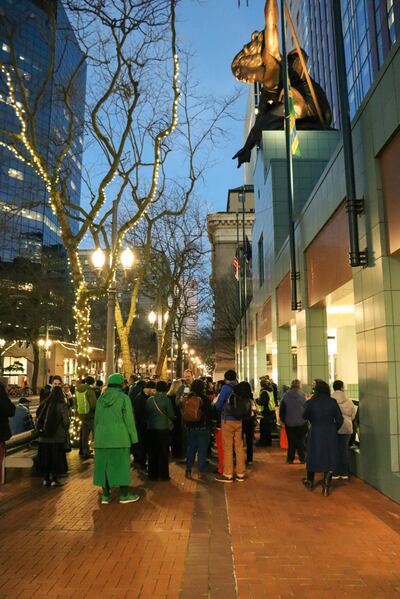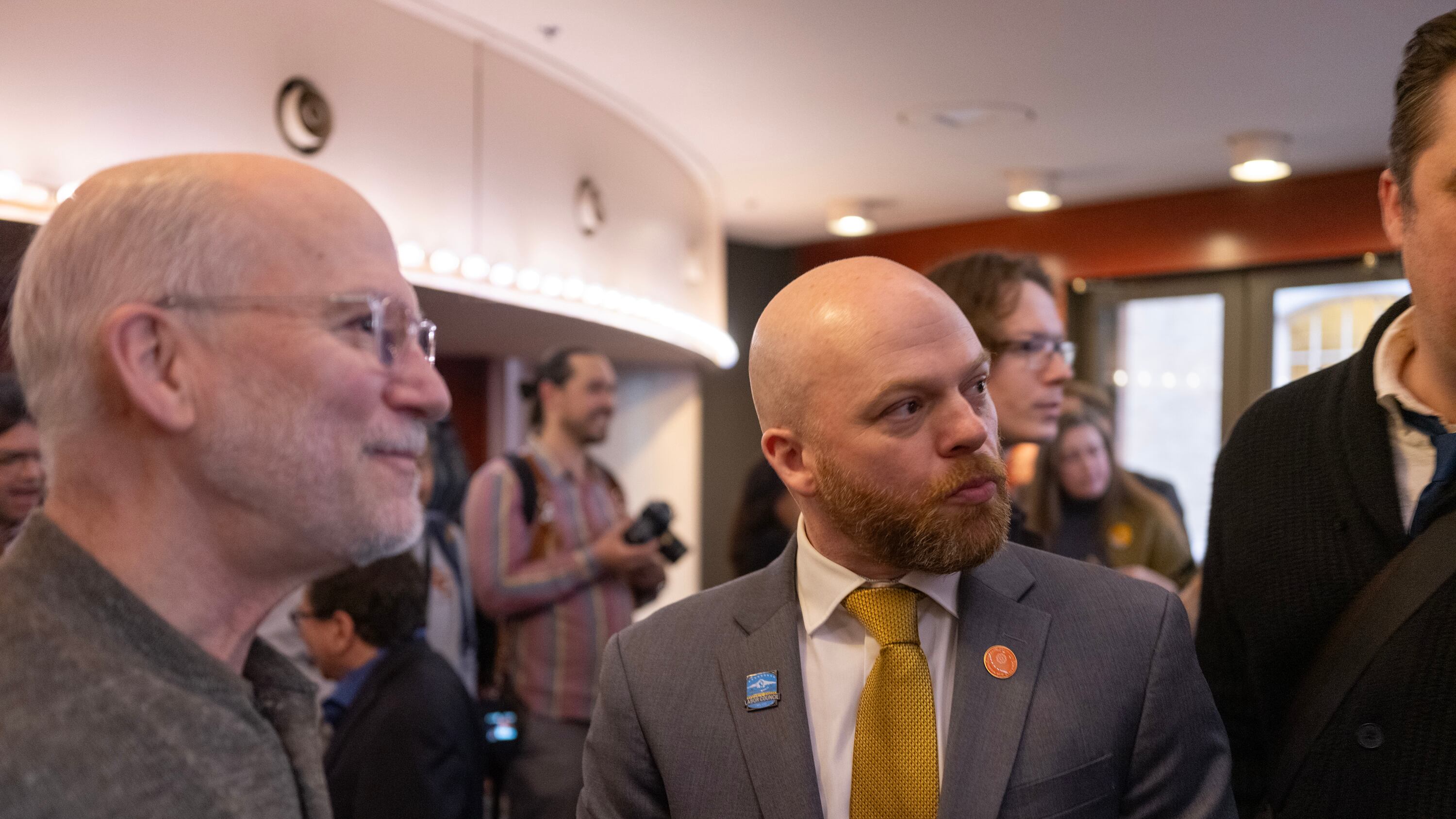City of Portland workers represented by American Federation of State, County and Municipal Employees Local 189, one of the labor unions in ongoing contract negotiations with the city, are attending a practice picket Thursday evening outside of the city-owned Portland Building downtown.
Currently, three separate labor contracts are being negotiated by the city and labor unions. AFSCME Local 189 is the largest among the unions and is negotiating its own contract with the city; the District Council of Trade Unions, which includes five unions, is negotiating another contract. The main sticking point between the unions and the city are pay increases for some job descriptions. The issue is especially fraught because the city is staring down a budget shortfall of at least $27 million in the 2025–26 fiscal year.
The city presented its last and best offer to AFSCME last week. The union rejected the offer, so now the two parties are in what’s called a “cooling-off” period. The union and the city can still negotiate and meet during the cooling-off period, but should negotiations continue to lead nowhere, the union could go on strike as soon as early February.
The contract that included AFSCME and the District Council of Trade Unions expired Dec. 31, 2024. AFSCME is now negotiating its own contract.

A glitch Wednesday in the city’s private computer network (the system that gives remote employees access to the city’s internet within offices) led the city to request that remote employees come into city offices on Thursday. Serendipitously for AFSCME, that meant more unionized workers were downtown and available to attend the practice picket.
Practice pickets are already a matter of some contention as the city and the unions tumble toward a potential strike.
In the final weeks of the former City Council, whose last day in office was Dec. 31, the City Attorney’s Office asked the body to give City Attorney Robert Taylor legal authority to file an unfair labor practice complaint against AFSCME for allegedly picketing and violating its contract with the city. (AFSCME denies that it violated any provision of the now-expired contract and that it allowed “practice pickets.”)
Unfair labor practice complaints are commonly used as a political tool—by both unions and governments—during high-stakes contract negotiations.
The former City Council approved the city attorney’s request by a 3–1 vote on Dec. 4. The only person to vote against it was Commissioner Dan Ryan, who also happens to be the only former commissioner on the new 12-member council. The window in which to file an unfair labor practice complaint is six months. The City Attorney’s Office has not yet filed a ULP against AFSCME, but currently the office has the authority do so at any point in the next five or so months.
But now, two members of the new Portland City Council—Councilors Mitch Green and Eric Zimmerman, both from District 4—are hatching a proposal to revoke that authority. If their proposal is approved by their colleagues on the City Council, it would revoke the City Attorney’s Office’s authority to file a ULP against AFSCME.
Green tells WW that the commissioners’ Dec. 4 authorization while they were headed out the door was “unnecessarily antagonistic” to labor and won’t help the city and unions reach a resolution on the contracts.
“I ran as a labor champion on the campaign. I had a slogan that said, ‘Standing up for working families means taking a side.’ That wasn’t just a slogan,” Green says. “It’s what I actually believe in.”
Zimmerman confirmed he’s working with Green on the proposal but declined to comment further.
Zimmerman and Green’s proposal is likely to gain traction on the council, the makeup of which is labor-friendly. Most of the members of the council received endorsements from various unions that represent city employees, and made promises on the campaign trail to work with the unions to make sure their members felt valued at City Hall. The Northwest Oregon Labor Council, which includes AFSCME, endorsed eight of the 12 councilors.
Those promises by the city’s newest elected officials will come to a head with the reality of the city’s budget shortfall in the coming weeks as the council gives city negotiators a sense of which concessions it’s willing to make to the unions in order to avert a strike.

